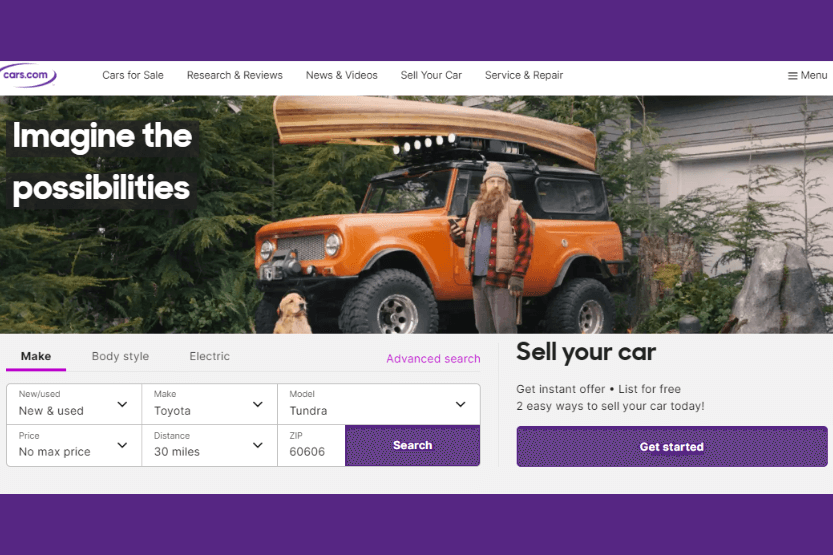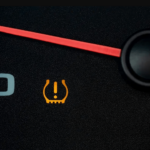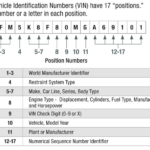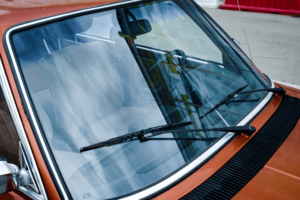Selling a car privately can be a great way to get the most money for your vehicle. However, the process can be a bit daunting, especially when it comes to paperwork. Knowing what paperwork you need to sell your car privately can help make the process smoother and less stressful.
One of the most important documents you’ll need when selling your car privately is the title. This document proves that you are the legal owner of the vehicle and have the right to sell it.
In addition to the title, you may also need to provide a bill of sale, which includes information about the sale, such as the date, purchase price, and vehicle identification number (VIN).
Other paperwork you may need to sell your car privately includes maintenance records, emissions documentation, and a vehicle history report. These documents can help potential buyers feel more confident in their purchase and may even help you get a better price for your car.
By being prepared with all the necessary paperwork, you can make the process of selling your car privately a smooth and successful one.
Gathering Required Paperwork

When selling a car privately, it is important to gather all the necessary paperwork to protect both the buyer and the seller. Here are some of the documents that may be required as per Colonial Subaru:
Title Transfer
The title is the legal document that proves ownership of the vehicle. The seller must sign the title over to the buyer, and the buyer must take the title to the DMV to transfer ownership. It is important to make sure the title is in your name and that there are no liens on the vehicle.
Bill of Sale
A bill of sale is a document that records the sale of the vehicle and includes important information such as the VIN, a detailed description of the car, the date of the sale, and the purchase price. Both the buyer and the seller should sign the bill of sale to protect themselves in case of any disputes.
Release of Liability
A release of liability is a document that protects the seller from any liability after the sale of the vehicle. The seller should file this document with the DMV to protect themselves in case the buyer gets into an accident or incurs any fines or fees.
Other documents that may be required include:
- Vehicle history report: This report provides information about the car’s history, including accidents, repairs, and maintenance records.
- Warranty documents: If the car is still under warranty, the seller should provide the buyer with the warranty documents.
- As-Is document: If the car is being sold “as-is,” the seller should provide the buyer with an as-is document that states that the car is being sold without any warranties or guarantees.
- Registration and license plates: The seller should remove the license plates from the car and cancel the registration.
- Odometer reading: The seller should provide the buyer with an accurate odometer reading to ensure that the mileage is recorded correctly.
- Service records: If the seller has any service records, they should provide them to the buyer to show that the car has been well-maintained.
When selling a car privately, it is important to take some precautions to protect yourself from fraud. Here are some simple steps for success:
- Research the value of your car: Use Kelley Blue Book or other online resources to determine the private party value of your car.
- Detail your car: Clean your car inside and out to make it look its best.
- Remove personal items: Make sure to remove any personal items from the car before showing it to potential buyers.
- Protect your personal information: Do not give out your personal information to potential buyers.
- Be wary of different ways to sell a car: Instant cash offers, third-party services, and online listings may not always be the best option.
- Negotiate wisely: Be prepared to negotiate the price of the car, but do not sell it for less than you are comfortable with.
- Use forms of payment that protect both parties: Escrow services, bank transfers, and Venmo are all good options.
- Transfer ownership correctly: Make sure to transfer ownership correctly to avoid any legal issues.
- Be aware of sales tax: In some states, the seller is responsible for paying sales tax on the sale of the vehicle.
- Be wary of sight unseen offers: Be cautious of buyers who want to buy the car without seeing it in person.
By following these simple steps and gathering all the necessary paperwork, you can sell your car privately and potentially make a profit.
Preparing Your Car for Sale
Before selling a car, it is important to make sure that it is in good condition and presentable to potential buyers. This involves preparing the car both mechanically and aesthetically. Here are some key steps to take when preparing a car for sale.
Detailing
A clean and well-maintained car is more likely to attract potential buyers. Therefore, it is important to detail the car thoroughly before putting it up for sale.
This involves cleaning the exterior and interior of the car, as well as removing any stains or scratches. Here are some key areas to focus on when detailing a car:
- Exterior: Wash the car thoroughly and remove any dirt or grime. Apply a coat of wax to protect the paint and make it shine. Clean the wheels and tires, and make sure they are free of any brake dust or debris.
- Interior: Vacuum the carpets and seats, and wipe down all surfaces with a damp cloth. Clean the windows and mirrors, and make sure they are free of any streaks or smudges.
- Engine: Clean the engine bay and remove any debris or dirt. Check the oil level and top it up if necessary.
Service Records
Having a record of the car’s service history can help to reassure potential buyers that the car has been well-maintained. Therefore, it is important to gather all service records and make them available to potential buyers.
This includes records of oil changes, tire rotations, and any other maintenance or repairs that have been done on the car.
Removing Personal Items
Before showing the car to potential buyers, it is important to remove any personal items from the car. This includes things like CDs, phone chargers, and other personal belongings. It is also a good idea to remove any stickers or decals that may be on the car, as these can be off-putting to potential buyers.
By following these steps, you can help to ensure that your car is in good condition and ready for sale. This will make it more attractive to potential buyers and increase your chances of selling it quickly and for a good price.
Advertising Your Car

When selling a car privately, advertising is key to reaching potential buyers. Here are some tips on how to effectively advertise your car:
Listing Your Car
The first step in advertising your car is to list it on a reputable platform. There are many websites and apps that allow you to list your car for free or for a fee. Some popular options include Autotrader, Cars.com, and Craigslist.
When listing your car, make sure to include all relevant information such as make, model, year, mileage, and asking price. It’s also important to include any additional features or upgrades your car may have. This will help your listing stand out from others and attract more potential buyers.
Taking Pictures
Taking high-quality pictures of your car is crucial to attracting potential buyers. Make sure to take pictures of all angles of the car, including the interior and exterior. It’s also important to take pictures of any features or upgrades your car may have.
When taking pictures, make sure the car is clean and well-lit. Try to take pictures during the day to ensure the best lighting. If possible, take pictures in a scenic location or somewhere that showcases the car’s features.
Writing a Description
When writing a description for your car, be honest and descriptive. Include all relevant information such as any accidents or damage the car may have, as well as any recent maintenance or repairs. This will help potential buyers make an informed decision about whether or not to purchase your car.
It’s also important to include any additional features or upgrades your car may have. This will help your listing stand out from others and attract more potential buyers.
When writing your description, make sure to use proper grammar and spelling. This will help your listing appear more professional and trustworthy.
Honestly, when it comes to selling your car privately, advertising is key. You gotta get the word out there, you know? So, my advice is to list your car on a reputable platform, snap some awesome pics that really show off its best features, and write a killer description that tells it like it is.
Being upfront and transparent is the way to go. By following these tips, you’ll attract interested buyers and sell that car in no time. Trust me, it’s all about making that connection and making the process smooth and hassle-free. Good luck!
Negotiating with Potential Buyers
Selling a car privately can be a daunting task, but it can also be a rewarding experience. Once you have found a potential buyer, the next step is to negotiate the sale. This can be a tricky process, but with the right preparation, you can ensure a successful outcome.
Responding to Inquiries
When a potential buyer contacts you, it’s important to respond in a timely and professional manner.
Answer any questions they may have about the car and provide them with any additional information they request. Be honest about the car’s condition and history, as this will help build trust with the buyer.
Test Drives
Before negotiating the sale, the buyer may want to test drive the car. This is a common request and can help the buyer determine if the car is right for them.
Before allowing a test drive, make sure the buyer has a valid driver’s license and insurance. It’s also a good idea to accompany them on the test drive to ensure the car is treated with care.
Negotiating Price
Negotiating the price of the car can be the most challenging part of the process. It’s important to set a realistic bottom line and be willing to compromise. Do your research and know the value of your car before negotiating. Be confident in your asking price, but also be open to reasonable offers.
Consider offering a discount if the buyer pays in cash or if they are a repeat customer. You can also sweeten the deal by including extras such as a warranty or a full tank of gas. Be sure to have all the necessary paperwork ready to go, including the title, bill of sale, and any maintenance records.
In conclusion, negotiating with potential buyers requires patience, honesty, and a willingness to compromise. By following these tips, you can ensure a successful sale and a satisfied buyer.
Completing the Sale

Selling a car privately requires a bit of paperwork to complete the transaction. When the buyer is ready to pay for the car, the seller must transfer ownership of the vehicle and pay any applicable sales tax. Here are some things to keep in mind when completing the sale.
Forms of Payment
When selling a car privately, it is important to consider the forms of payment that will be accepted. Cash, cashier’s checks, and wire transfers are some of the most common forms of payment. It is recommended to avoid personal checks or money orders, as these can be easily forged.
If the buyer is financing the car, the seller should make sure that the financing is approved before completing the sale.
Transferring Ownership
To transfer ownership of a car, the seller must sign the title over to the buyer. In some states, the seller must also provide a Notice of Transfer or Release of Liability form to the DMV.
This form notifies the DMV that the seller is no longer responsible for the car. The buyer must then register the car in their name and pay any applicable fees.
Sales Tax
When selling a car privately, the seller is responsible for paying any applicable sales tax. The amount of sales tax varies by state, so it is important to check with the local DMV to determine the amount that must be paid.
The seller should also make sure to keep a record of the sale, including the sales price and any taxes paid.
Thoroughly preparing for the sale and being aware of the necessary paperwork can help ensure a safe transaction. Serious buyers will appreciate a seller who is organized and knowledgeable about the process.
Consider using an As-Is document to protect yourself from any future liability issues. To make the process even easier, consider using an online platform like Instant Cash Offer to get an estimate for your car and connect with potential buyers.
Final Thoughts
Selling a car privately can be a daunting task, but with the right paperwork and preparation, it can be a smooth and successful process. It is important to have all the necessary paperwork in order to avoid any legal issues or complications down the line.
One helpful tip is to create a checklist of all the required documents and make sure to have them ready before listing the car for sale. This can include the title, bill of sale, odometer disclosure, and any other relevant documents depending on your state’s requirements.
Another important consideration is to accurately assess the value of the car and set a fair asking price. This can be done by researching similar cars in your area and taking into account factors such as mileage, condition, and any additional features.
When it comes to negotiating with potential buyers, it is important to be firm but also willing to compromise. It may be helpful to have a minimum price in mind and be prepared to walk away if the buyer is not willing to meet your terms.
Overall, selling a car privately can be a rewarding experience and can often result in a higher sale price than trading it in at a dealership. With the right preparation and paperwork, it can be a successful and stress-free process.






![Honda Brake Fluid [What You Need to Know] Honda Brake Fluid](https://roadsumo.com/wp-content/uploads/2022/02/Honda-brake-fluid-150x150.jpg)


